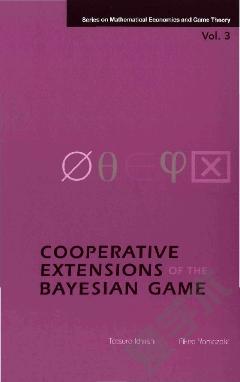Cooperative Extensions Of The Bayesian Game
The first part of this paper provides conceptual discussions of key ingredients. The basic one-shot model of Bayesian society is presented first; it synthesizes Harsanyiâs (1967/68) Bayesian game and Aumann and Pelegâs (1960) non-side-payment game (NTU game). Jacksonâs (1991) observation of the equivalence of the two widely adopted formulations of incomplete information is briefly reviewed. Two required meaningful conditions on an endogenously determined strategy are discussed: (1) Radnerâs (1968) measurability condition with respect to an information structure, and (2) dâAspremont and Gerard-Varetâs (1979) Bayesian incentive compatibility. Two descriptive interim solution concepts, the Bayesian incentive-compatible coarse core and the Bayesian incentive-compatible interim core, are discussed. The second part presents some results on the two interim solutions for the Bayesian pure exchange economy (a specific instance of the Bayesian society) in the private information case. The Bayesian incentive-compatible coarse core is nonemepty. The Bayesian incentive-compatible interim core may be empty, as pointed out by Hahn and Yannelis (1997). Sufficient conditions for its nonemptiness are explicitly formulated. It is unlikely that these two positive results are extended to the general framework of Bayesian society. The materials here are taken from Ichiishi and Yamazaki (forthcoming).
{{comment.content}}








 京公网安备 11010802027623号
京公网安备 11010802027623号